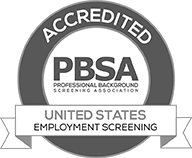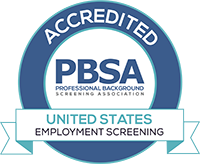BLOG
Second Chance Month 2024
April 16, 2024
April is nationally recognized as Second Chance Month.
About The Second Chance Movement
The U.S. Department of Justice’s Office of Justice Programs recognizes April as Second Chance Month. It is said to be a time for individuals, communities and employers to evaluate their role in supporting the safe, successful return of individuals who have been incarcerated.Over the last 15 years, the Second Chance Act (SCA) has been responsible for:
- Awarding funding to 1,123 SCA grantees to help them re-enter society.
- Helping numerous states adopt their own Second Chance laws.
- Working with private corporations that champion the Second Chance movement.
- Helping community-based organizations start innovative programs that help people find jobs, housing and other necessities.
Second Chance Month Proclamation
The White House released a Proclamation about the benefits of Second Chance Month. Highlights included:- Noting that more than 650,000 people are released from prisons each year and they often have very little money. These individuals commonly face difficulties with obtaining employment and re-entering society.
- Referencing a plan the Administration established to improve rehabilitation efforts in prisons and jails to help people rebuild their lives after being incarcerated.
- Explaining that the Administration has worked diligently to establish pardons for people who have convictions for simple marijuana possession.
In closing, the Proclamation calls upon: “Government officials, educators, volunteers, and all the people of the United States to observe this month with appropriate programs, ceremonies, and activities.”
Events
Various events have been planned throughout the United States in recognition of Second Chance Month. They include informative assemblies, expungement clinics and other useful activities. Learn more.
What Employers Should Know
The Second Chance Movement continues to grow throughout the United States. As it does, numerous individuals are able to get non-violent criminal records expunged. Once that happens, those records can no longer be considered by organizations when they are making employment or other decisions about consumers.A simple yet effective way to avoid inadvertently doing that is to work with a Consumer Reporting Agency (CRA) that is accredited by the Professional Background Screening Association (PBSA). To earn accreditation, CRAs must demonstrate that they follow reasonable procedures to provide current, accurate and reportable records.
Employers should also be aware that multiple states have laws that are designed to help people who have convictions. These bills vary and typically require organizations to take steps such as:
- Not running a background check until otherwise confirming a person is eligible for employment.
- Refraining from including language that discourages someone who has a criminal record from applying for work.
- Individually assessing criminal records that are seen in a background check.
We recommend consulting with counsel to ensure you are compliant with laws that are in effect wherever your business operates.
Running Background Checks
If your organization needs background checks for employment purposes, please contact us. We are proud to be an accredited CRA with more than 20 years of experience as a leader in the screening industry.
Our friendly, experienced team can help you customize screening packages based on your specific needs, applicable laws and industry regulations. We are based in California and available to assist you Monday through Friday from 5am to 6pm PT.







